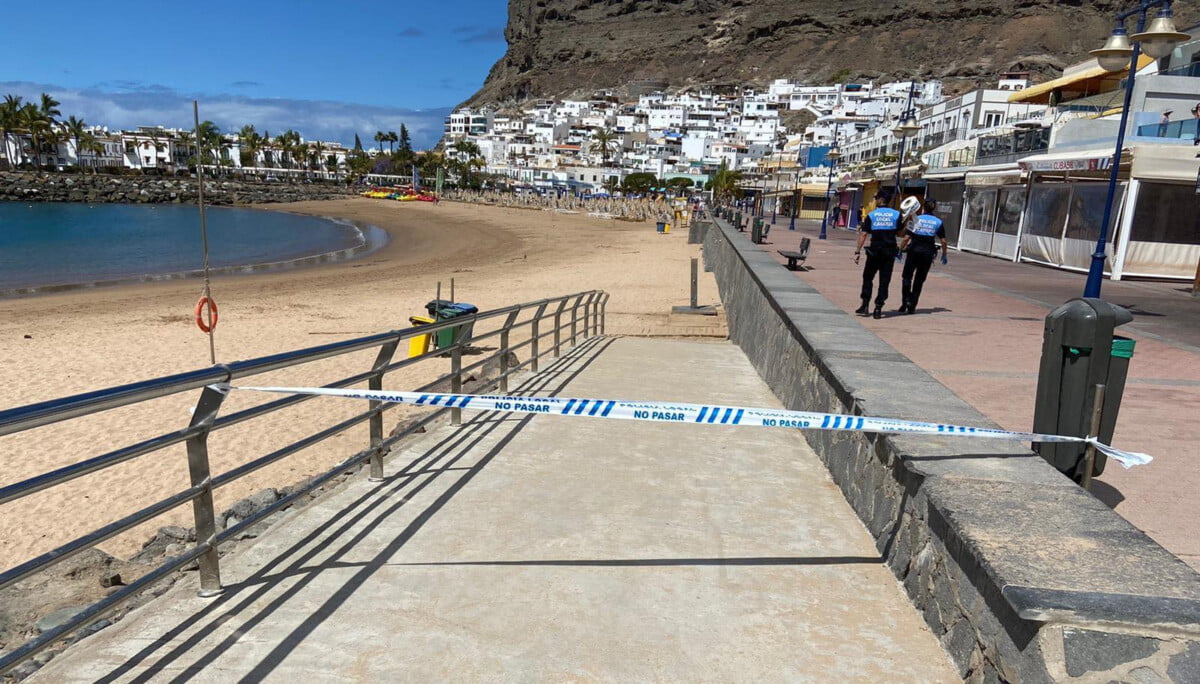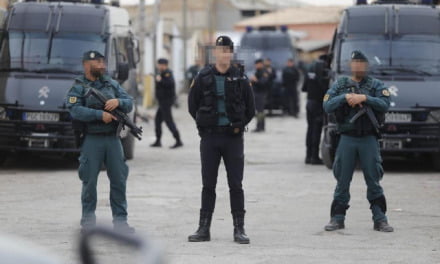As the new Covid-19 strain spreads in United Kingdom, Prime Minister Boris Johnson this Monday announced his roadmap out of the pandemic restrictions including a total ban on non-essential international travel both from and to the country until at least May 17 2021. Though this may have put a hole in any hopes for a quick return to tourism for The Canary Islands, leaving empty beaches for springtime, it does at least offer a sense of certainty for when we might expect British holiday makers to start to return. Nevertheless, on these small sub-tropical islands off the coast of Africa, survival often is success and an eye is often cast out across our many horizons for opportunities to turn our environment to our advantage.
Empty beaches for springtime
Brits hoping for any sort of get away to enjoy our empty beaches for springtime, or around easter, had been hopeful of positive data allowing them out of lockdowns and travel restrictions within the next few weeks, however Downing Street made clear that the UK was not willing to take any more risks when it comes to unnecessary journeys in and out of the country. The global travel and aviation sectors have been among the hardest-hit during the pandemic, and in few countries more so than the United Kingdom. The new outright ban comes following fears over data that suggests new Covid-19 strains have been spreading across the country.
Spain’s progressive coalition Government, under Prime Minister Pedro Sanchez, had barely managed to establish their socialist agenda before this pandemic redrew the rules of engagement, derailing extraordinary plans to ensure Minimum Vital Income for every citizen, who fell below a certain threshold of earnings, in an environment now which is likely to lead to hugh swaithes of the tourism workforce being completely without income for months, and with the reignition of Spain’s tourism industry wholly dependent on origin markets such as the UK, Germany and to a lesser extend other Northern European economies.
For The Canary Islands this latest blow will be painful, however it does at least give us something to aim towards beyond empty beaches for springtime. In mainland Spain a campaign to Save Our Summer began just two weeks ago, urging the UK Prime Minister to set forward a road map which would allow for summer bookings to start once again. Here in The Canaries we are blessed with year-round sunshine and a vibrant winter tourism season too, so many business owners now will be weighing up the costs involved in chasing uncertain Summer revenues, as opposed to keeping their powder dry to aim towards a safer and less competitive Winter Holiday Season. Local businesses have struggled with meagre support from the Regional and National Governments, with many self-employed feeling completely abandoned, with contributions still being taken despite a total lack of earnings in most cases, and employees totally reliant on the ERTE (Spanish furlough scheme) to try to make ends meet. As businesses go under so more and more of the workforce are turning to look for government assistance, and that is foreseeably going to become more and more difficult to administrate under Spain’s already beleaguered Social Security system, creaking under the weight of an aging population and a total lack of reforms for more than a decade. Rental assistance for many has been near impossible to access, meaning ever increasing numbers of people could be facing a housing time-bomb as landlords, also desperate for income, chase growing debts from a population unable to earn a wage.
Local businesses have struggled with meagre support from the Regional and National Governments, with many self-employed feeling completely abandoned, with contributions still being taken despite a total lack of earnings in most cases, and employees totally reliant on the ERTE (Spanish furlough scheme) to try to make ends meet. As businesses go under so more and more of the workforce are turning to look for government assistance, and that is foreseeably going to become more and more difficult to administrate under Spain’s already beleaguered Social Security system, creaking under the weight of an aging population and a total lack of reforms for more than a decade. Rental assistance for many has been near impossible to access, meaning ever increasing numbers of people could be facing a housing time-bomb as landlords, also desperate for income, chase growing debts from a population unable to earn a wage.

 Back in London, PM Boris Johnson said on Monday that domestic overnight stays and self-contained accommodation will be allowed to operate again no earlier than 12 April but non-essential international travel will remain out of the question.
Back in London, PM Boris Johnson said on Monday that domestic overnight stays and self-contained accommodation will be allowed to operate again no earlier than 12 April but non-essential international travel will remain out of the question.
Highlighting his new, long awaited, road map out of lockdown, Johnson said, “This is part of the roadmap’s second step and it will take place at least five weeks after the first step” referring to the 8 March date set for a return to schools, part of his conservative government’s four-step plan, but pointed out that these steps could be postponed if the prime minister or his advisers deem it necessary.
He said the earliest date that international holidays could be allowed would not be before 17 May.
The UK government’s Global Travel Taskforce is set to reconvene by 12 April, and issue a report recommending how they think international trips might resume safely, he said.
Boris Johnson told journalists that this will “give people time to make their plans for the summer”
Airport Operators Association chief executive Karen Dee responded to the news by saying “As the worst-hit economic sector in 2020, this will ensure we will also be the worst-hit sector of 2021”
“The UK and devolved governments must set out sector-specific support to help ensure there are viable airports to be able to restart,” Dee added, saying that the Prime Minister’s recognition of aviation’s important economic role, in particular for businesses that rely on access to international markets or visitors to the UK, was welcome.
British Airways chief executive Sean Doyle said it is “critical we start looking at a way to restart travel”, and added that he is “pleased the government has acknowledged that”
“We support a data-led approach that protects public health. We want to work with the government’s task force on a road map now to ensure that aviation is in a strong position to support the UK as we emerge from the pandemic.” concluded Doyle For the UK there will be an interval of at least five weeks between each of the stages of the plan (except the first, which is divided into two steps) to allow the impact of the changes in infection rates and hospital admissions to be assessed. The key dates are as follows:
– Starting March 8: All schools will open and extracurricular activities and sports will be allowed in the open air . Likewise, recreation will be allowed in public outdoor spaces and there will be a green light for up to two people to sit down for a coffee, a drink or a picnic.
– As of March 29: up to six people or two different households can meet outdoors. Outdoor sports facilities, such as tennis or basketball courts, will reopen and organised sports for adults and children, such as grassroots football, will also return. High school students will be able to access tests and will be required to wear a face mask in classrooms and in shared spaces such as hallways.
– As of April 12: the reopening of many sectors of the economy is planned. Non-essential retail businesses, hair salons, and some public buildings such as libraries will be back in business. Leisure activities will be allowed once again in indoor facilities such as swimming pools or gyms. One of the great novelties is that Brits will be able to travel independently to establishments with kitchens or camping sites. For trips abroad, we will have to wait until this date for the plan developed by Johnson’s Travel Taskforce.
– Starting May 17: Goodbye to the ‘rule of six’ for outdoor gatherings which will, it is expected, be significantly increased up to 30 people. Residents of two different households will be able to mix inside and cinemas, museums, hotels, theatres and sporting events will all reopen. Football stadiums will be allowed to accommodate up to 10,000 spectators, while weddings, receptions, funerals and wakes will be limited to 30 people.
– As of June 21: if the situation allows it, limits on social contact will end . Nightclubs will be able to reopen and Downing Street hopes to eliminate restrictions on the numbers attending weddings and funerals.
Interval between stages
Confidence for spring and summer
Boris said the goal was to be “cautious, but irreversible. At each stage, decisions will be based on data, not dates. There is a credible route to a Britain without COVID and a world without COVID”.
Likewise, the wild haired British leader put on display his confidence that the situation will be very different in spring and summer: “They will be seasons of hope, of looking and feeling incomparably better for all of us.” he concluded.











